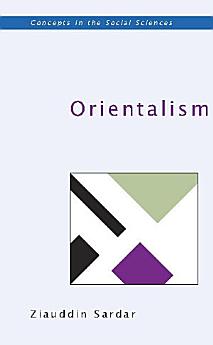Orientalism
Ziauddin Sardar
sept. 1999 · McGraw-Hill Education (UK)
3,0star
1 avisreport
E-book
146
Pages
reportLes notes et avis ne sont pas vérifiés. En savoir plus
À propos de cet e-book
- Why did orientalism emerge and how has it evolved?
- Has the theory of orientalism developed by Edward Said and others stood the test of time?
- What is the significance of postmodernism for the future of orientalism?
Ziauddin Sardar provides a highly original historical perspective and shows how orientalism was reworked and reinvested during the Middle Ages, the Enlightenment, colonialism and under the impact of modernity. Through the examination of a wide range of cultural products - films, television, fiction, CD-roms - this clear and coherent overview suggests that, as a practice of representing the 'Other', orientalism has been substantially transformed: it has reformulated itself as a diverse and sophisticated tool of representation.
Notes et avis
3,0
1 avis
À propos de l'auteur
Ziauddin Sardar is a writer, cultural critic and editor of the prestigious journal Futures. He is the author of the classic studies The Future of Muslim Civilisation (Mansell, 1979) and Islamic Futures: The Shape of Ideas to Come (1985). His most recent books include Barbaric Others: A Manifesto on Western Racism (Pluto, 1993), Introducing Cultural Studies (Icon, 1997) and Postmodern and the Other (Pluto, 1998). He is also Visiting Professor of Postcolonial Studies, Department of Art Policy and Management, City University.
Donner une note à cet e-book
Dites-nous ce que vous en pensez.
Informations sur la lecture
Smartphones et tablettes
Installez l'application Google Play Livres pour Android et iPad ou iPhone. Elle se synchronise automatiquement avec votre compte et vous permet de lire des livres en ligne ou hors connexion, où que vous soyez.
Ordinateurs portables et de bureau
Vous pouvez écouter les livres audio achetés sur Google Play à l'aide du navigateur Web de votre ordinateur.
Liseuses et autres appareils
Pour lire sur des appareils e-Ink, comme les liseuses Kobo, vous devez télécharger un fichier et le transférer sur l'appareil en question. Suivez les instructions détaillées du Centre d'aide pour transférer les fichiers sur les liseuses compatibles.






